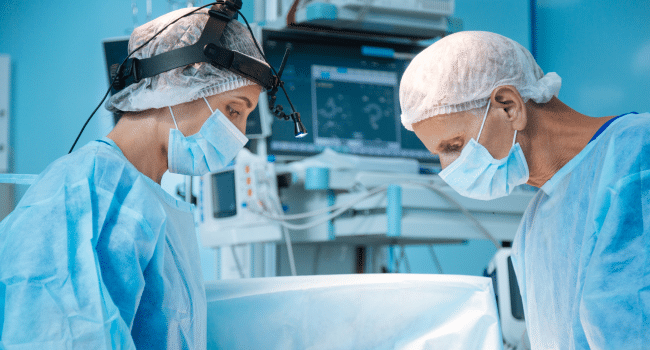Table of Contents
Introduction: Decoding the Brain’s Mysteries
The human brain, a marvel of biological engineering, is the centre of the nervous system and controls almost every aspect of human life, from breathing and heartbeat to emotions, thinking, and memory. Complex brain operations, both the physiological processes and medical procedures needed to treat brain disorders, are critical to maintaining this central organ’s health and functionality. This guide will delve into how the brain operates on a daily basis and what happens during surgical interventions.
Navigating the Complexities of Brain Surgery
Brain surgery represents a pinnacle of medical achievement and is used to address various neurological conditions, from tumours and blood clots to injuries and anomalies in brain function. Consulting with a qualified Sydney neurosurgeon or a specialist in your local area is crucial if surgery is being considered. These professionals are equipped with the expertise to handle the intricacies of brain operations, which require precision and deep understanding of the brain’s delicate structure.
Understanding Brain Functions
Before exploring surgical interventions, it’s essential to understand the basic functions of the brain and how they might be affected by disorders:
1. Cognitive Functions: These include thinking, memory, learning, and decision-making processes.
2. Emotional Regulation: The brain controls emotional responses and the ability to feel pleasure, sadness, and anger.
3. Motor Skills: From simple movements like walking to complex actions like playing a musical instrument, the brain’s motor regions orchestrate all physical activity.
4. Sensory Processing: All sensory information from the environment, such as sight, sound, touch, taste, and smell, is processed by the brain.
Types of Brain Disorders
A variety of conditions can affect the brain’s ability to function properly:
- Brain Tumours: These can be benign or malignant and may require surgical removal to prevent damage to healthy brain tissue.
- Traumatic Brain Injury (TBI): Injuries from accidents can cause bleeding, tissue damage, and long-term cognitive effects.
- Neurodegenerative Diseases: Conditions like Alzheimer’s and Parkinson’s disease progressively damage the brain’s neurons.
- Vascular Disorders: Stroke and aneurysms, which involve blood supply issues, can lead to significant brain damage without timely intervention.
Surgical Interventions and Innovations
Deciding on Surgery
The decision to undergo brain surgery is significant. It often depends on factors such as the severity and location of the brain disorder, symptoms experienced by the patient, and the potential outcomes and risks of surgery.
Common Surgical Procedures
- Craniotomy: Removal of a portion of the skull to access the brain tissue.
- Biopsy: Removal of a small section of brain tissue for diagnostic purposes.
- Deep Brain Stimulation (DBS): Implantation of electrodes in the brain to treat neurological conditions like Parkinson’s disease.
- Endoscopic Third Ventriculostomy (ETV): A procedure to relieve pressure caused by fluid accumulation.
Technological Advancements
Modern technology has revolutionised brain surgery:
- Neuronavigation: Uses pre-operative imaging to guide the surgeon during the procedure, enhancing precision.
- Robotic Surgery: Offers higher precision and faster recovery times.
- Intraoperative MRI: Allows surgeons to take images during the operation to assess the progress and plan further steps accurately.
Post-Surgical Care and Recovery
Immediate Post-Operative Care
After brain surgery, close monitoring in a hospital setting is crucial to manage pain, monitor for complications, and assess the initial recovery phase. The medical team will provide support to manage symptoms and ensure the patient’s vital signs remain stable.
Rehabilitation
Recovery from brain surgery can be a lengthy process, involving various types of rehabilitation depending on the areas affected:
- Physical Therapy: Helps regain movement and strength.
- Occupational Therapy: Assists in relearning everyday activities.
- Speech and Language Therapy: Necessary if communication abilities have been impacted.
- Neuropsychological Support: Addresses changes in cognition and emotional well-being.
Preventing Brain Disorders
While not all brain disorders can be prevented, lifestyle choices can significantly impact brain health:
- Regular Exercise: Increases blood flow to the brain, enhancing cognitive function and neuroplasticity.
- Healthy Diet: Nutrients from a balanced diet support brain health and function.
- Mental Stimulation: Activities that challenge the brain, like puzzles, reading, and learning new skills, can improve resilience against cognitive decline.
- Regular Check-Ups: Early detection of issues through regular medical check-ups can lead to better outcomes.
Empowering Yourself with Knowledge
Understanding complex brain operations, both physiological and surgical, equips you with the knowledge to make informed decisions about your health or that of loved ones. Whether it’s taking preventive measures to maintain brain health or considering surgical options for treatment, the key is to stay informed and consult with medical professionals to navigate these complex choices effectively. With advances in medical science and technology, the potential for successful outcomes continues to improve, offering hope and recovery options to those facing neurological challenges.
